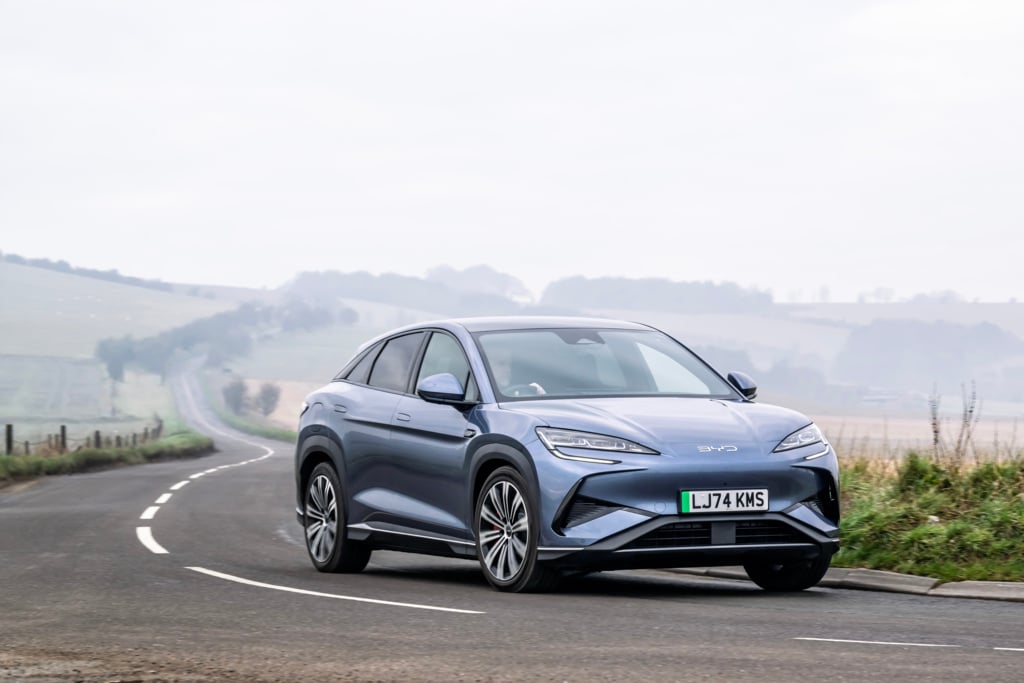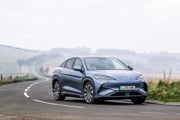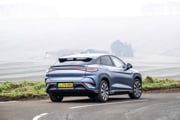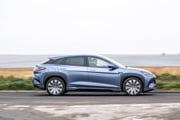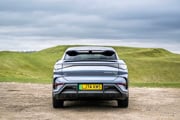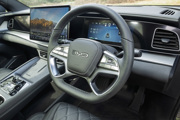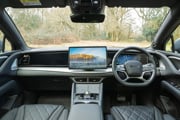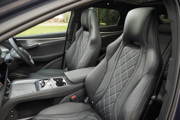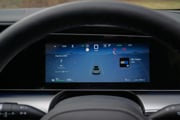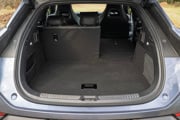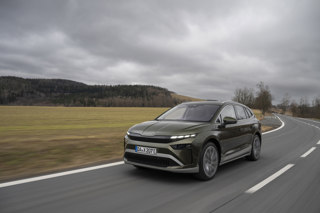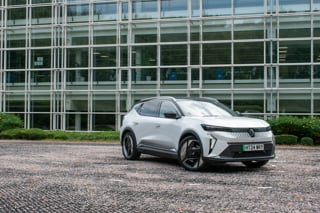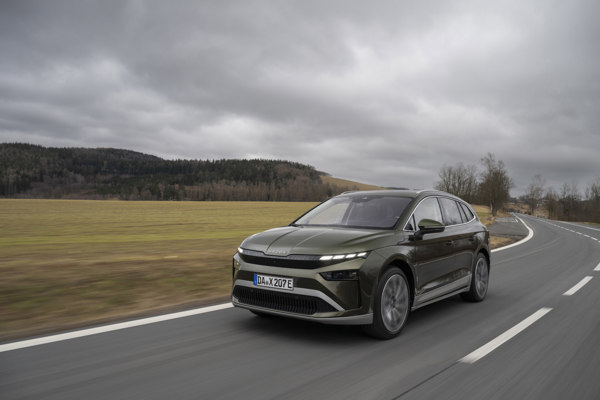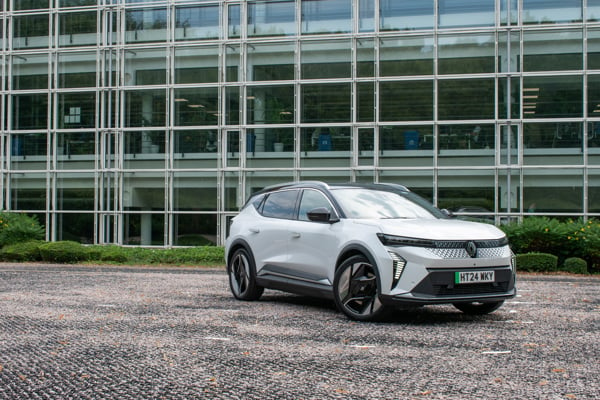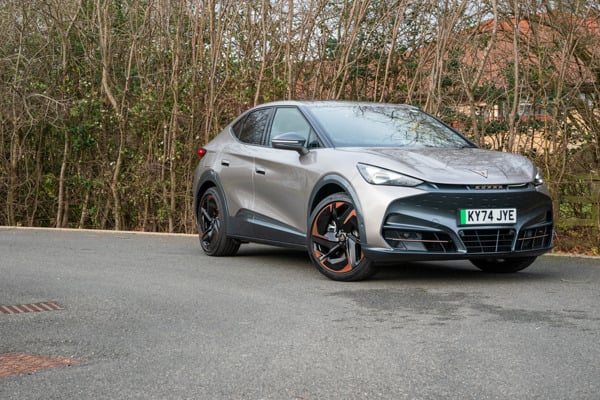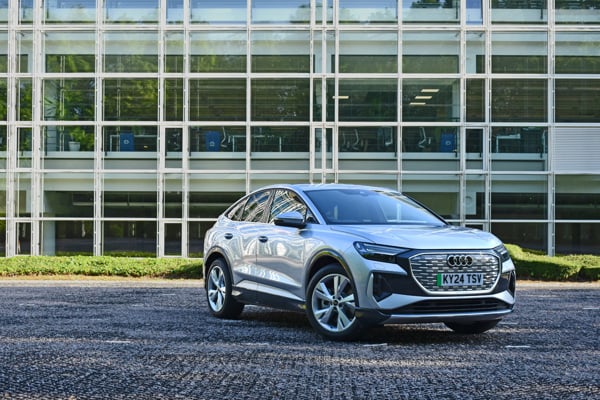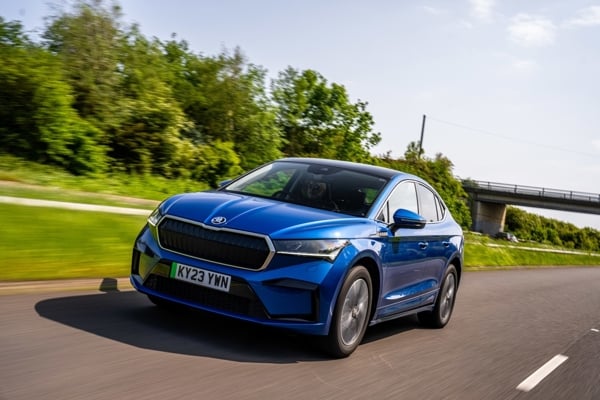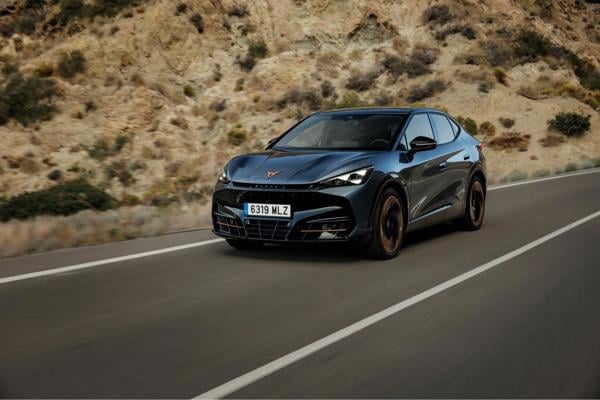Review
The Sealion 7 is a spacious SUV with a premium feel, high levels of standard equipment and strong performance, but does not offer the same strong all-round package as some rivals.
Overview
BYD has made no secret of its ambition to be a major player in the UK fleet market, and the Sealion 7 is the latest stage in its plan.
The fifth BYD to be launched in the UK, the five-seat fully-electric SUV is also positioned further upmarket than its siblings, hoping drivers will be tempted by its mix of a more premium feel, practicality and high standard equipment levels.
There are three versions: the rear-wheel drive single-motor Comfort with 308PS, and the dual-motor Design AWD and range-topping Excellence AWD, which both offer 523PS.
P11D pricing ranges from £46,935 for Comfort models to £58,935 for Excellence.
Comfort and practicality
BYD has positioned Sealion 7 as its most premium model and the interior reflects this. The cabin design is sleek and refined, although there are plenty of swoopy design features to ensure it is not staid.
The materials used in the interior are decent quality, and it all knits together to form a cohesive design. BYD’s signature rotating infotainment screen remains, and this also provides a crisp display.
There’s plenty of room in the cabin as well, with the generous legroom in the back a highlight. A large panoramic roof also helps it feel really airy and spacious.
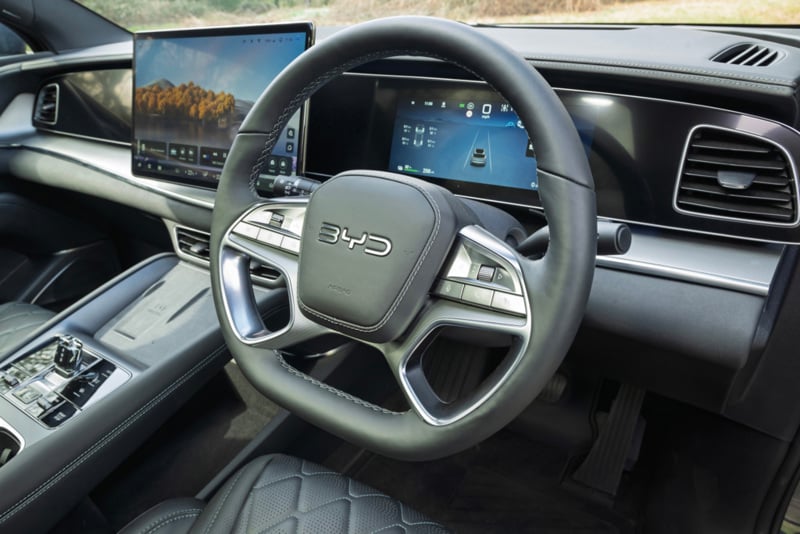
Its boot has a capacity of 520 litres, while further practicality is added through a 58-litre compartment under the bonnet, which is large enough for a small suitcase or a handy place to store the charging cable.
Disappointingly, while the car is packed with such a large of amount of technology, with the driver even able to open the powered boot through voice control, the frunk is opened though an old-fashioned bonnet release lever found in the driver footwell.
In a fully-electric car that is jam-packed with technology, this feels a little disappointing.
Safety and technology
All through the range, Sealion 7 offers an impressive level of standard equipment.
On Comfort, this includes automatic LED headlights, 19-inch alloy wheels, heated steering wheel, front and rear parking sensors, a 360-degree camera, heated front and rear seats, dual-zone climate control, wireless smartphone charging, and keyless entry.
As well as the previously-mentioned 15.6-inch infotainment touchscreen, there is a 10.25-inch digital driver display, a Dynaudio sound system with 12 speakers, voice control, and Android Auto and Apple CarPlay connectivity.
In fact, the entry-level trim is so well equipped, extra standard equipment on Design is essentially limited to larger 20-inch wheels, while Excellence adds leather seats.
Sealion 7 uses a new generation of software for the infotainment system but this was not as intuitive to use as the systems used by key rivals, although physical buttons for some operations were a welcome addition.
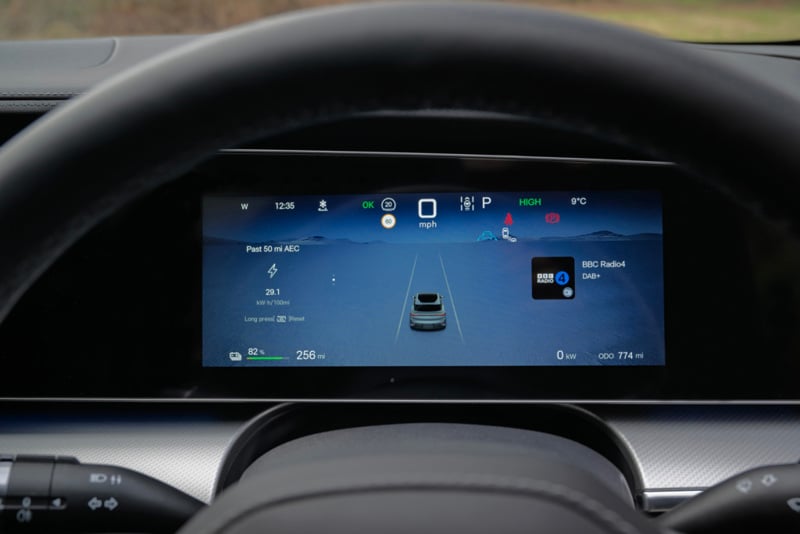
All models also have a comprehensive suite of safety equipment, including adaptive cruise control, forward and rear collision warning, front cross traffic alert, door opening warning and driver distraction warning.
Driveability and range
Sealion 7 drivers get a choice of two battery sizes and two motor configurations spread across three models.
The range starts with the rear-wheel drive Comfort – the only single-motor option – which has 308PS and a WLTP range of 300 miles from its 82.5kWh battery. This gives it an efficiency of 3.12 miles/kWh.
Design uses the same battery but gains all-wheel drive through a twin-motor set-up. The extra motor for the front wheels boosts the overall power output to 523PS, with this model receiving a raft of chassis, braking and other upgrades to deal with the rise in power. It has a WLTP range of 283 miles, for an efficiency of 2.84miles/kWh.
The range-topping Excellence version uses the same motor set-up, but has a larger 91.3kWh battery for a WLTP range of 312 miles, equivalent to 2.84miles/kWh.
We did not have the opportunity to do a thorough efficiency test, but as it is common to achieve lower than the stated figures the real-word results are likely to be a little disappointing – certainly not near the top of its class.
We drove an Excellence model and BYD says this – and the Design variant – has a 0-62mph sprint time of 4.5 seconds. Although it has an impressive turn of pace on the road when it got going, it didn’t feel that mind-blowingly quick.
It’s refined and pretty comfortable, though, and soaks up bumps and road imperfections pretty well as its suspension is a touch on the soft side.
The steering is light and responsive, but its abilities cannot hide the fact that the model we tested is a 2.4-tonne SUV: agility is not its middle name.
This makes it much more suited to motorway driving than tight B-roads, which is understandable as this is a family SUV after all.
When it comes to charging, all three variants have an 11kW AC onboard charger, which allows the Comfort and Design AWD models to charge from 0% to 100% in 8.6 hours, while it takes the larger battery in the Excellence AWD 9.6 hours.
The maximum DC charging rate on Comfort and Design AWD models is 150kW, giving them a 10-80% capacity charging time of 32 minutes, while the Excellence AWD can take power on at up to 230kW, reducing the time for the same percentage charge increase to 24 minutes, even though it adds more miles.
Company car tax and running costs
As a new brand, BYD has worked hard to improve the residual value expectations of its models, and this has paid off with the Sealion 7.
This means its running costs are competitive in the class, although it will cost more to operate than established rivals such as the Skoda Enyaq and Renault Scenic.
According to the Fleet News Company Car Tax calculator, The Sealion 7 Comfort will cost a fleet 47.45p per mile to run over a four-year/80,000-mile cycle, around 5ppm more than a Renault Scenic Iconic 87kWh, and 3ppm more than a Skoda Enyaq Advanced 82kWh.
As they are all fully electric, all models sit in the 3% benefit-in-kind tax bracket, meaning a 20% taxpayer will face a monthly company car tax bill of between £24 and £30.
Specs
| Manufacturer | BYD |
| Model | Sealion 7 Estate |
| Specification | BYD Sealion 7 Estate 390kW Design AWD 83kWh 5dr Auto |
| Model Year | 2024.00 |
| Annual VED (Road tax) | £0 |
| BIK List Price | £51,935 |
| Range | 283.00mile(s) |
| CO2 | N/A |
| BIK Percentage | 2% |
| Insurance Group | N/A |
| CC | 1 |
| Fuel Type | Electric |
| Vehicle Type | Medium SUV |
| Luggage capacity (Seats up) | 520litres |
| Doors | 5 |
Running Costs
| P11D | £51,935 |
| Cost per mile | 59.42ppm |
| Residual value | £21,375 |
| Insurance group | N/A |
| Fuel Type | Electric |
| Cost per mile | 201.22ppm |
| Fuel | 3.09ppm |
| Depreciation | 195.40ppm |
| Service maintenance and repair | 2.73ppm |
Rivals
Info at a glance
-
P11D Price
£51,935
-
MPG
N/A (WLTP) -
CO2 Emissions
N/A -
BIK %
2% -
Running cost
3 Year 60k : £21,375 4 Year 80k : £17,425 -
Fuel Type
Electric -
Range
283.00mile(s)



